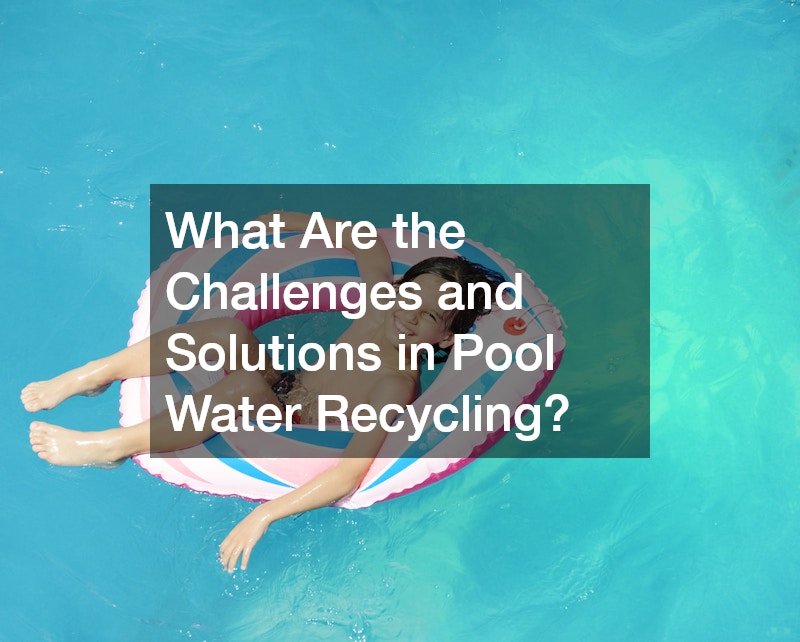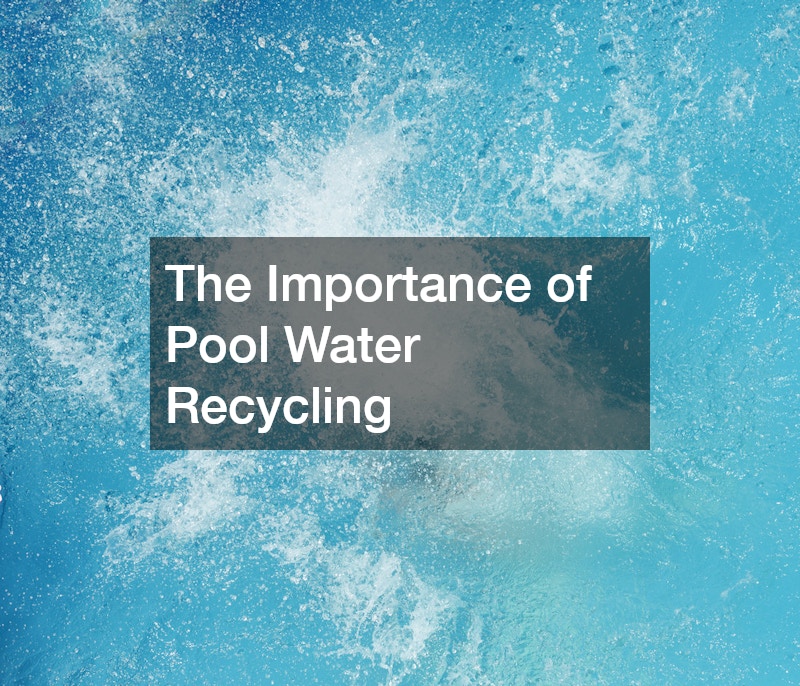Sustainable water practices have become crucial in addressing the global water crisis, and pool water recycling stands out as a significant measure within this domain. Recycling not only offers environmental benefits but also provides economic advantages that make it a viable option for pool owners.
The undertaking of pool water recycling raises several pivotal questions, such as its definition, methods, and the challenges faced. This article aims to explore these questions and demystify the process of pool water recycling.
By highlighting the distinctions and benefits of this practice, we will encourage pool owners to adopt sustainable actions that contribute to water conservation.
1. What is Pool Water Recycling?
1.1 Definition and Process
Pool water recycling refers to the process of treating used pool water to make it reusable, thereby conserving water resources. This involves removing contaminants and balancing the chemical composition to suitable levels for continued use.
The process typically begins with filtering the water to remove particulate matter, followed by chemical adjustments to restore water balance. Various technologies like reverse osmosis can further enhance the purification process by eliminating dissolved salts and other impurities.
The ultimate goal of pool water recycling is to minimize the need for fresh water, thus playing a critical role in sustainable water management. This eco-friendly practice is gaining popularity among environmentally conscious pool owners.
1.2 Difference Between Recycling and Reusing Pool Water
Recycling and reusing pool water are often used interchangeably but refer to different concepts. Recycling involves restoring water to a quality suitable for pool use by undergoing significant treatment processes.
On the other hand, reusing involves simple filtration or basic chemical adjustments without significant purification, where the water is reused within defined parameters. While both practices aim to reduce water wastage, recycling is more comprehensive.
The distinction is important, as recycling usually involves more advanced technologies and therefore provides a higher level of water quality. Both techniques promote sustainability and resource conservation.
2. Why is Recycling Pool Water Environmentally Important?
2.1 Conservation of Water Resources
Water scarcity is a pressing issue, and recycling pool water addresses this by reducing the demand on natural water bodies. By recycling, we contribute to sustainable water management practices and alleviate pressure on water sources.
Even a single pool’s water recycling can conserve thousands of gallons annually, equating to significant water savings when widely adopted. This conservation translates to more water being available for other essentials, like agriculture and drinking.
In places where water is scarce, recycling pool water could be a crucial measure for sustainable living. It ensures that luxury does not come at the expense of a dwindling natural resource.
2.2 Reduction of Chemical Waste
Swimming pools usually require high levels of chemical treatment, resulting in chemical-rich waste when drained. Recycling minimizes the escape of these chemicals into the environment, therefore protecting ecosystems.
By reusing chemically treated water rather than discharging it, the amount of toxins reaching soil and waterways is significantly reduced. This is particularly important considering the potential for chlorine and other substances to adversely affect plant and aquatic life.
Moreover, recycling minimizes the need for excessive chemical use, as the treatments applied to recycled water are more targeted. This results in a lower environmental footprint for pool maintenance.
3. How Does Pool Water Recycling Save Money?
3.1 Reduction in Water Bills
One of the most direct financial benefits of pool water recycling is the reduction in water bills. By recycling water, pool owners need to purchase less municipal water, translating into savings over time.
Recycled water provides a cost-effective alternative to constantly refilling pools. These savings can be especially significant in regions where water prices are high or during droughts when tariffs might increase.
3.2 Lower Maintenance Costs
Recycling pool water can result in lower maintenance costs, as water quality is kept stable, reducing the frequency of costly interventions. Regular water changes and chemical balancing are minimized, which extends the life of pool equipment and infrastructure.
This stability means less wear and tear on filtration systems and pumps, further reducing maintenance expenses. Hardware that is tasked with processing fewer contaminants generally requires fewer repairs and replacements.
4. What Are the Methods for Recycling Pool Water?
4.1 Reverse Osmosis Systems
Reverse osmosis is a popular method for recycling pool water due to its effectiveness in removing dissolved solids and contaminants. This process involves forcing water through a semi-permeable membrane, capturing unwanted particles, and producing clean, reusable water.
One of the main advantages of reverse osmosis systems is their ability to provide high-quality water consistently. This precision makes them a preferred choice for pool owners looking for optimal water quality.
4.2 Filtration and Chemical Adjustments
Beyond reverse osmosis, traditional filtration and chemical adjustments present another method for pool water recycling. Sand filters, cartridge filters, and diatomaceous earth filters can effectively remove suspended solids from pool water.
Chemical adjustments, such as pH balancing and chlorine re-stabilization, are often necessary to ensure the water remains safe and clear. This approach combines physical removal of debris with chemical treatments to maintain water quality.
5. What Are the Challenges and Solutions in Pool Water Recycling?
5.1 Technical and Operational Challenges
Pool water recycling, while beneficial, faces several technical and operational challenges. These include the initial cost of setting up recycling systems and the need for ongoing maintenance and expertise.
The complexity of some systems, like reverse osmosis, requires specialized knowledge for operation and troubleshooting. Additionally, finding the right balance of chemicals during the recycling process can be challenging.
5.2 Overcoming Barriers with Innovative Solutions
Innovative solutions are continuously emerging to overcome these barriers, making pool water recycling more accessible and efficient. Technological advancements have led to easier-to-use systems that require less expertise and maintenance.
Smart monitoring systems now allow pool owners to track water quality and adjust chemical levels in real time. This automation reduces the burden on pool owners and increases the effectiveness and reliability of recycling processes.
.


777xgame, gotta love those lucky numbers! Give it a spin and see what happens, eh? Always chasing that big win! Good luck, everyone! 777xgame
Alright, listen up. vip777login treated me well. Solid interface and the customer service was quick to help. Give it a try: vip777login
Yo, 115slotgame is cool! A lot of fun slot variety, and the graphics are vibrant. I recommend you try it: 115slotgame